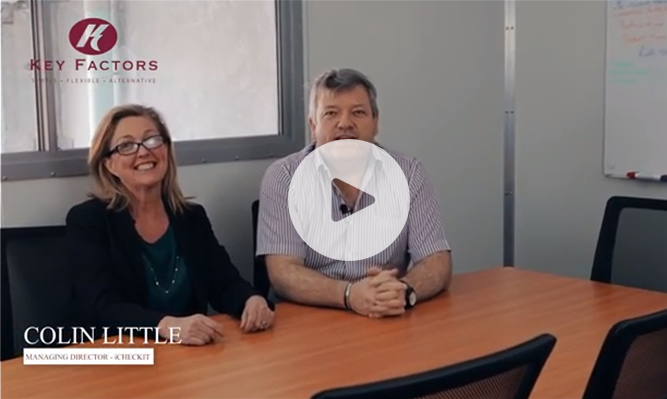How to Collect Unpaid Invoices
By Ram - Jan 19 2024
Every business will stumble across unpaid invoices, which can impact cash flow and the ability for the business to meet its financial obligations to its suppliers and cover its overheads.
Most businesses don’t know how to proceed when the deadline for an invoice has passed other than to continue waiting for the payment. Although waiting is a strategy, you should also have systems to ensure you get paid. Maintaining cash flow is crucial for the business’s survival and growth.
What Unpaid Invoices Mean to a Business
There’s more to unpaid invoices than meets the eye. With an increase in late payments over the last year, with the average SME waiting up to 37 days past the due date to receive payment, unpaid invoices could dry up a business’s cash flow and its ability to grow and succeed.
When invoices go unpaid, the business must spend additional time and energy chasing the payment rather than using those resources for activities that grow the business. Additional admin costs and lost opportunities due to cash being tied up that could have been used to buy new stock and other revenue-generating activities.
Besides having payments hang up, unpaid invoices can be detrimental to a business in more ways than having a leaner bank account. Every business should have a system in place to help them keep the number of unpaid invoices manageable.
Steps to Collect an Unpaid Invoice
If you haven’t thought about how to handle unpaid invoices until now or have been struggling to handle unpaid invoices, here are some of the steps you should follow to encourage clients to get the invoices paid.
Charge a late payment penalty
Charging a late payment penalty can keep clients from paying their invoices on time or sooner. It can also help you recoup some expenses and time spent chasing the invoice.
The penalty fee can include the amount and the date it will go into effect in your contract with the client. Remember, you can’t charge a penalty fee if it hasn’t been agreed upon with the client at the contract’s start. Therefore, you should ensure the penalty fee is vividly mentioned in the contract’s payment policy.
In contrast, you should also consider adding an early payment discount to encourage your customers to pay faster. On average, companies offer a 2% discount if the invoice is paid within 10 days after being raised. Clients might be willing to leverage this discount and make an early payment to save some money themselves.
Follow up in Writing
Another way to follow up on an invoice that has passed its deadline is to send a polite email reminder. Sometimes, the invoice could have slipped through the cracks. Upon receiving the written reminder, the client might be more than happy to quickly clear the invoice and the late fees to avoid straining the business relationship.
A friendly reminder might be all that is required to get the invoice paid. It’s also an opportunity to build a deeper relationship with the client and seek out opportunities for more work. Any unpaid invoice follow-up should always start with a friendly reminder.
Send a Statement of Outstanding Cost
If you don’t have a positive response from the client and the invoice is still unpaid, you can kick things up a notch by sending another email or letter with a statement of outstanding cost.
In the email or letter, explain that the invoice is overdue and inform the client of any penalty fees applicable.
Why not also read: Types of Business Finance
If the invoice is service-based and you’re still working on a project for the client, you should consider reprioritising and give any outstanding work for the client a low priority until you have received payment for the services or products you already supplied.
Call the Client
If the two attempts at written reminders go unanswered or don’t yield positive results, it’s time to call the client. It’s harder to avoid a request for payment over the phone than on an email or letter.
During the call, enquire if the client has received your previous payment requests and if there is an issue paying the invoice. Directly chatting with the client can help you understand the situation and your client’s intentions.
You might also find that the client has cash flow issues that prevent them from paying the invoice in full. If that is the case, you should consider a documented payment plan that details how much the client will pay and the payment period.
If the client is not open to your payment plan or ignores your calls, it’s time to escalate the situation and take more drastic measures.
Get outside help
You should consider getting outside professional help if the invoice remains unpaid despite your best efforts.
You have two options that can help you collect the money owed to your business;
Debt collection agency
Debt collection agencies are experts in recovering payments from debtors. Besides increasing your chances of getting paid, debt collection agencies also save you the headache of chasing the payment and focusing on the growth of your business.
Most agencies have tried and tested methods of recouping money owed. You might also find that informing a client that you plan to pass the unpaid invoice onto a debt collection agency might prompt payment.
Invoice finance
Large companies are the biggest offenders in late invoice payments and unpaid invoices. SMEs shoulder a substantial burden of debt when they work with large companies. Usually, such invoice factoring companies have the funds to run around against debt collectors. The more efficient option for you is invoice financing.
It can help you quickly access the money you are owed rather than wait for your client to pay. You can use your unpaid invoice as collateral and get a substantial upfront payment of up to 80%, which can help free up some cash. Once the customer pays, the balance is sent to you minus the fees for the service.
Seek legal advice
If all else fails, it’s time to seek legal recourse. You can hire a lawyer to take legal action. The type of legal action you take depends on the type of business your client is registered as. At this point, you should also consider the cost and energy involved in recovering the debt. Ensure it doesn’t exceed the value of the unpaid invoice. If it does, it is not worth it.
It might be more cost-effective to walk away from smaller invoices and implement processes to ensure the situation doesn’t happen again. For larger invoices, a debt collection agency might be ideal.

